#porträt der jungen frau in flammen
Text
what if Orpheus looked back because he couldn’t imagine having to one day lose Eurydice again when she dies and go through the grief a second time

#portrait of a lday on fire#celine sciamma#adele haenel#noemie merlant#eurydice#orpheus#portrait de la jeune fille en feu#porträt der jungen frau in flammen
0 notes
Link
Translated interview
A new politics of love - An interview with Adèle Haenel on 'Portrait of a Lady on Fire'
By Barbara Fohringer, in: The Gap, 28th of October 2019
Additions or clarifications for translating purposes are denoted as [T: …]
The film 'Portrait of a Lady on Fire' not only shows a same-sex love but also an equal one between two women in the 18th century. The Gap met with Adèle Haenel, one of the two leading actresses, for a conversation.
Marianne (Noémie Merlant), a painter in the 18th century, is commisioned to do a portrait of the aristocratic Héloïse (Adèle Haenel) - without her knowledge -, as Héloïse already refused to sit for another painter. Héloïse, whose sister has recently died, is promised to a nobleman in Milan, her portrait is meant to illustrate her future marriage. In Céline Sciamma's ('Water Lilies', 'Tomboy', 'Girlhood') new film, it is two women who fall in love with each other, two women who are equals.
'Portrait of a Lady on Fire' received the Best Screenplay award and 'Queer Palm' at the Cannes Film Festival this year. The film opened the Viennale a couple of days ago. Adèle Haenel ('Water Lilies', 'The Bloom of Yesterday', '120 BPM') came to Vienna for this event - and answered some of our questions.
Interviewer: Why did you choose this role? Why did it appeal to you?
Adèle Haenel: I've known Céline Sciamma, the director, for a long time. We met twelve years ago and did our first film together, and I think, she is currently one of the most talented directors in France. [T: 🥰] I then read the screenplay, and thought it is a wonderful love story. When I finished reading it, I cried.
I: How did you approach the role? How did prepare for it? It is after all a period film, which takes place at the end of the 18th century.
AH: I never think like that. The fact that it is a period film doesn't influence the way I'm acting. It would be the wrong approach, to think about acting in that way. It doesn't matter in which period the story takes place, but it's about the problem that this film deals with. You cannot say: This is the way to prepare for a period drama. I was interested in the key question of the film and that it's centred around queer people. We wanted to tell a new love story, because it's about the love between two people that are equals. It's two women of roughly the same age. They are of similar height and intelligence. None of them dominates the other. This was our foundation. We asked ourselves, how this collaboration - in love - could work and how we could show love without possession. It's about a new politics of love. It was important for us to show a certain sexiness in equality, consent and non-possession. This opened up new concepts, as we are not yet used to these kinds of stories. We are used to think of submission as sexy - but not of equality. That was the main thing. When I took on the role, I considered it as a journey from object to subject. That is the character's journey.
I: The film not only shows the equality of the characters in terms of its content, but also visually, it virtually creates a female gaze, a new perspective on female characters. How was the shooting, and how did you, the director and you, approach the characters?
AH: Yes, that was the plan. It really is a Post-#MeToo-film. I don't think it would have been possible to make the film beforehand, because there was little understanding about the concept of alienation between women or rather solidarity between women. We talk more with each other now, there are more alliances between women. You can see this with the character of Sophie the maid. She is a maid, but she is also much more than that and has her own story, independent of the two main characters. The film consists of many long shots, and has its own rhythm. I think, the framing also demonstrates the relationship between the characters. Sometimes we as actors didn't have much room to move, sometimes we had more.
I: The aspect of class was also interesting for me, as just discussed for the character of Sophie, and also the fact, that it's about art and how you create this image of another person. How did you approach this theme?
AH: Art is part of the love story in this film, although you could also say the opposite. The film is also about working on a piece of art. The character of Marianne asks herself what qualifies as a good portrait - does it have to contain the soul of a person or is it rather about capturing a moment in time. Marianne didn't ask herself these questions before that, she followed the rules in her way, so when she meets Héloïse she is forced to question herself and to become aware of her choices. Of course, I don't have anything to do with the pictures, but Noémie Merlant took some lessons with Hélène Delmaire, who made all the pictures that you can see in the film.
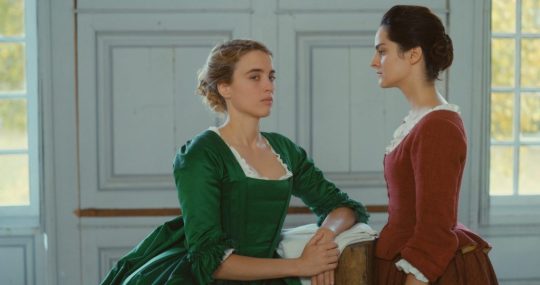
I: What other female roles are you interested in?
AH: I'm more interested in the dynamics of a film. So every character intrigues me and there is no topic that doesn't appeal to me. The dynamics and the point of view are close to my heart. Sure, you can also say that fight scenes or riding a motorcycle or whatever are interesting, but that's not really the point.
I: What did you learn about yourself and the business since you became an actress?
AH: I don't know about that, but I do know: If a do a film, then I have philosophical and political questions that I'm asking myself at the time. Every film that I made since 2012 tried to answer one of those questions. It's not necessarily about me. But rather pursuing an idea. Younger actresses and actors, who want to learn the trade, need to listen to what brings them joy. [T: Mari Kondo vibes, she actually says inner joy] The feeling for acting you can, you have to feel. It's not just in your head, but also in your heart. Many have that and they must not let go of it. Don't follow the rules and stay true to yourself. But you also have to be careful, there can be problematic situations.
I: Right now, it's the Viennale in Vienna. Do you have a connection with Austrian films?
AH: My father is from Austria, that's why I have a special connection with this country, but I'm not that familiar with the Austrian cinema. But I'm interested in working in German. I would like to do more films or theatre plays in German.
I: Your German is quite good already, especially, when you consider that you learned the language quite late.
AH: I learned German when shooting 'The Bloom of Yesterday'. But when I'm tired, everything is kaputt (laughs) [T: broken]. I'd rather speak in English then. However, I did the Q&A in German in the cinema yesterday.
I: Can you already tell us something about your new projects?
AH: I'm currently working at the theatre. We just started with the rehearsals and will perform next year. [T: 🙏🏿] The play is called 'The Pond' by Robert Walser [T: which is directed by Gisèle Vienne and also stars Ruth Vega Fernandez, see here]. We originally wanted to do this play in German, but we will do it in French now - I think. If we do perform this play internationally, then we might switch to German. Either way, I know the text in French and German. 'The Trouble with You' by Pierre Salvadori will be released in Austria soon. (Editor's note: [...] from 8th of November 2019.)
I: Many French films are quite successful internationally but also in Austria. What do you think is the reason for this success?
AH: France has an exceptional financing system for films. Every film that is successful in cinema gets funding afterwards, which can then be invested in new film projects. We produce a lot of films, even though we are not such a big country. The French film has a very good reputation. I believe, this benefits arthouse films as well as commercial ones.
I: What profession would you have taken, if you hadn't become an actress?
AH: I think, I would give acting classes then.

#Adèle Haenel#Austrian interview#The Gap#2019#PoaLoF#Portrait of a Lady on Fire#Portrait de la jeune fille en feu#I love what she says about Céline#Find a woman who can do both#Ride a (tiny) motorcycle#And look smashing in costume#BUT where is the Q&A from the Viennale?!#My translation#long post
73 notes
·
View notes
Text
Porträt einer jungen Frau in Flammen [[ Deutsch ]] - Film (2019)HD.4k-online
Schau Jetzt ►► https://tinyurl.com/y4qeszed
Starttermin 31. Oktober 2019 (2 Std. 02 Min.)
Von Céline Sciamma
Mit Noémie Merlant, Adèle Haenel, Luàna Bajrami mehr
Genres Drama, Historie
Produktionsland Frankreich
Porträt einer jungen Frau in Flammen ganzer film HD kinox
Porträt einer jungen Frau in Flammen ganzer film 2019
Porträt einer jungen Frau in Flammen ganzer film deutsch
Auf einer abgelegenen Insel in der Bretagne wird Ende des 18. Jahrhunderts die Pariser Malerin Marianne (Noémie Marchant) von einer verwitweten Gräfin (Valeria Golino) beauftragt, das Hochzeitsporträt ihrer Tochter zu zeichnen. Das klingt einfacher, als es ist, denn die künftige Braut und ehemalige Klosterschülerin Héloïse (Adèle Haenel) rebelliert gegen ihre Mutter und will aus Protest gegen die arrangierte Ehe nicht Modell stehen. Doch das Porträt ist für die Familie sehr wichtig, denn nur so kann die Eheschließung mit einem ihr unbekannten Mann aus Mailand offiziell bekannt gemacht werden. So bleibt Marianne nichts anderes übrig, als Héloïse während ihrer Spaziergänge an der Meeresküste genau zu beobachten und sie später aus dem Gedächtnis heraus zu zeichnen. Je länger die beiden Frauen Zeit miteinander verbringen, je tiefer die beiden sich dabei in die Augen sehen, desto näher kommen sie sich
1 note
·
View note
Photo
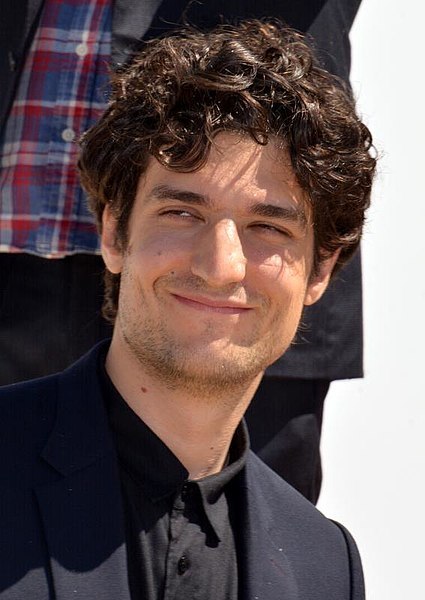
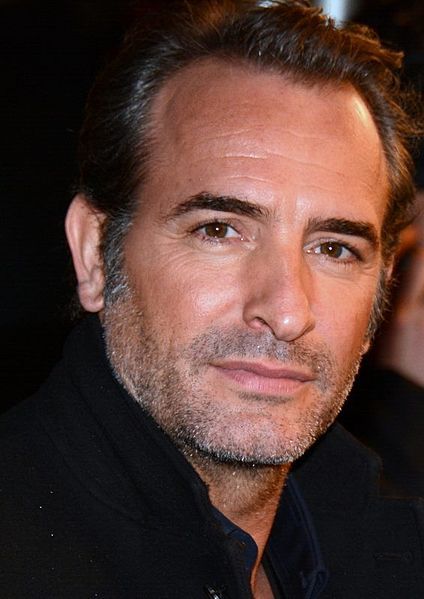
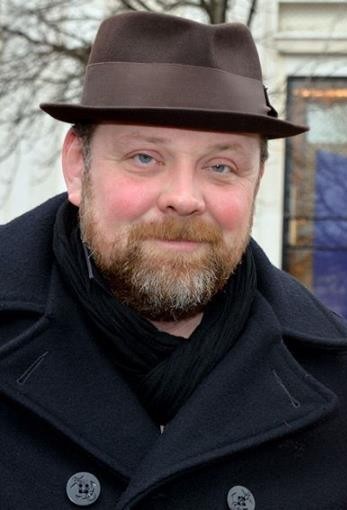
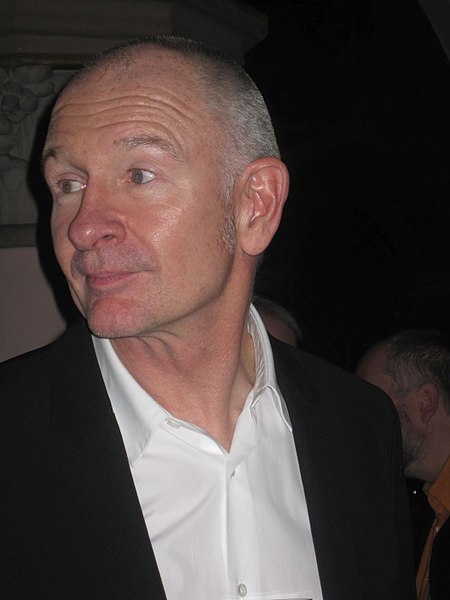
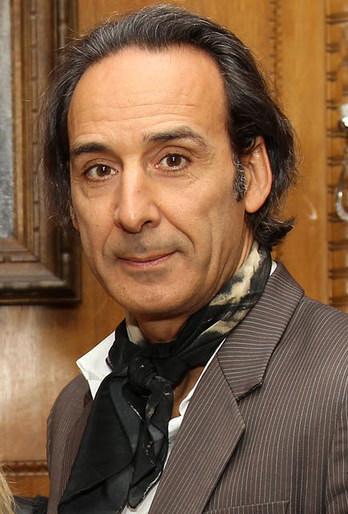
Intrige beim César 2020
Louis Garrel: als Hauptmann Alfred Dreyfus
Jean Dujardin als Marie-Georges Picquart
Intrige (Originaltitel: J’accuse) ist ein Historiendrama des Regisseurs Roman Polański, der gemeinsam mit dem britischen Schriftsteller Robert Harris auch das Drehbuch nach dessen Roman Intrige verfasste. Der Film mit Jean Dujardin und Louis Garrel in den Hauptrollen behandelt die Dreyfus-Affäre und gewann bei seiner Weltpremiere im Wettbewerb der Filmfestspiele von Venedig 2019 den Großen Preis der Jury und war für den Europäischen Filmpreis 2019 nominiert.
Stab
Regie Roman Polański
Drehbuch Roman Polański, Robert Harris
Produktion Alain Goldman
Musik Alexandre Desplat
Kamera Paweł Edelman
Besetzung
Jean Dujardin: Marie-Georges Picquart
Louis Garrel: Hauptmann Alfred Dreyfus
Emmanuelle Seigner: Pauline Monnier
Grégory Gadebois: Hubert-Joseph Henry
Intrige startete am 13. November 2019 in den französischen und am 6. Februar 2020 in den deutschen Kinos.
Die 45. César-Verleihung findet am 28. Februar 2020 im Salle Pleyel in Paris statt. Die von der französischen Académie des Arts et Techniques du Cinéma vergebenen Filmpreise für die besten Produktionen des Kinojahres 2019 werden in 22 Kategorien verliehen; hinzu kommen drei Spezialpreise.
Mitte Februar 2020 trat der Vorstand der César-Akademie geschlossen zurück, nachdem u. a. Kritik an den 12 Nominierungen für Roman Polańskis Intrige laut wurde. Zuvor hatten rund 400 Prominente aus der französischen Filmszene in der Tageszeitung Le Monde in einem offenen Brief eine „tiefgreifende Reform“ der privatrechtlichen Institution „wegen eines an Vetternwirtschaft grenzenden Mangels an Transparenz“ gefordert.
Nominierung Intrige
Louis Garrel (* 14. Juni 1983 in Paris) ist ein französischer Schauspieler und Regisseur.
Jean Dujardin (* 19. Juni 1972 in Rueil-Malmaison, Département Hauts-de-Seine) ist ein französischer Schauspieler, Komiker, Sänger und Oscar-Preisträger.
Bester Film
Die schönste Zeit unseres Lebens (La belle époque) – Regie: Nicolas Bedos
Gelobt sei Gott (Grâce à Dieu) – Regie: François Ozon
Alles außer gewöhnlich (Hors normes) – Regie: Éric Toledano und Olivier Nakache
Intrige (J’accuse) – Regie: Roman Polański
Die Wütenden – Les Misérables (Les misérables) – Regie: Ladj Ly
Porträt einer jungen Frau in Flammen (Portrait de la jeune fille en feu) – Regie: Céline Sciamma
Roubaix, une lumière – Regie: Arnaud Desplechin
Beste Regie
Nicolas Bedos – Die schönste Zeit unseres Lebens (La belle époque)
François Ozon – Gelobt sei Gott (Grâce à Dieu)
Éric Toledano und Olivier Nakache – Alles außer gewöhnlich (Hors normes)
Roman Polański – Intrige (J’accuse)
Ladj Ly – Die Wütenden – Les Misérables (Les misérables)
Céline Sciamma – Porträt einer jungen Frau in Flammen (Portrait de la jeune fille en feu)
Arnaud Desplechin – Roubaix, une lumière
Alexandre Desplat (* 23. August 1961 in Paris) ist ein französisch-griechischer Komponist. Er komponierte Musik zu über 150 Film- und Fernsehproduktionen.
Für die Musik der Filme Grand Budapest Hotel und Shape of Water – Das Flüstern des Wassers wurde er mit dem Oscar für die Beste Filmmusik ausgezeichnet.
Die 45. César-Verleihung findet am 28. Februar 2020 im Salle Pleyel in Paris statt. Die von der französischen Académie des Arts et Techniques du Cinéma vergebenen Filmpreise für die besten Produktionen des Kinojahres 2019 werden in 22 Kategorien verliehen; hinzu kommen drei Spezialpreise.
Beste Filmmusik
Fatima Al Qadiri – Atlantique
Alexandre Desplat – Intrige (J’accuse)
Dan Levy – Ich habe meinen Körper verloren (J’ai perdu mon corps)
Marco Casanova und Kim Chapiron – Die Wütenden – Les Misérables (Les misérables)
Grégoire Hetzel – Roubaix, une lumière
0 notes
Video
youtube
Eine Insel, zwei Frauen und unzählige verstohlene Blicke. Für F.A.Z.-Redakteurin Verena Lueken ist Céline Sciammas „Porträt einer jungen Frau in Flammen“ der Film des Jahres. Warum das so ist, erklärt sie in der Videofilmkritik. © FAZ.NET, @AlamodeFilm
www.kunoweb.de/film-video/ >>>Kino bei KUNO
0 notes
Link
(Auto-)translated article
Actress Adèle Haenel: The French Revolutionary
Johannes Bluth, in: DER SPIEGEL, 30th of October 2019
// Additions or clarifications for translating purposes are denoted as [T: …]. The article was previously autotranslated here. I’ve compared and corrected the autotranslation where necessary. //
In France, Adèle Haenel is much sought-after as actress. You can see the reason why in her new films: ‘The Trouble with You’ and ‘Portrait of a Lady on Fire’.
Adèle Haenel is regarded as great hope when it comes to the renewal of the somewhat dusty French cinema. Because the 30-year-old actress succeeds in something that is rare in the elitist Parisian cultural cosmos: to remain an outsider.
‘I grew up with Jim Carrey comedies,’ says Haenel. ‘But I mostly watched anime, the films of Hayao Miyazaki were on non-stop.’ It is not exactly what you would expect from an actress who is currently much sought-after by the entire French film elite. Haenel takes these liberties - simply because she can. ‘My connection to film is just gut feeling,’ she says in a conversation in Berlin. ‘A cinephile culture, I do not have that. My parents never went to the cinema.’
Because she was such a restless child, her parents had sent the five-year-old to theatre classes. At the age of 12, Haenel made her first film, the acclaimed psychodrama ‘The Devils’. But then she lost sight of acting, graduated from high school and was brought back to film by [T: Casting director Christel Baras], who saw her at a rally.
This spontaneity informs Haenel's career to this day. The story of a film? She usually doesn’t care about it: More important is a unique view of the world, which should always be a bit crazy. ‘I want to feel that my counterpart has an obsession, that there is something that he or she won’t let go of.’ Therefore, she always chooses the directors and projects herself and not the other way around.
Haenel speaks fast French [T: Adèle ‘Machine Gun’ Haenel, y’all!], always seems to be one step ahead in her mind. A restless feeling that also sets in when watching her films: the sheer variety of roles that Haenel is able to depict, is bewildering. Whether as a prostitute in Bertrand Bonello's nightmarish Fin de Siècle epic ‘House of Tolerance’, as a confident doctor in the social drama ‘The Unknown Girl’ by the Dardenne brothers or as an anti-Aids activist in Robin Campillo’s ‘120 BPM’ - there is no role that you wouldn’t trust Haenel to do.
And so it’s fitting that two of her [T: current] films […] could hardly be more different: ‘The Trouble with You’ and ‘Portrait of a Lady on Fire’.
‘The Trouble with You’ was already a big hit in France in 2018. In the highly original film by Pierre Salvadori, Haenel plays the cop Yvonne, a slightly dreamy, but not naïve woman who saves her fellow human beings from ruin in a very funny way. She is a mother, widow, has a colleague who constantly proposes to her, and wants to protect the eponymous Antoine. Yvonne's late husband had wrongfully put him in jail.
This character overload was exactly what attracted her to the role, says Haenel. ‘With so many films, I feel that characters are just there for a certain thing, a feeling, or a message. Here, the characters are full of contradictions, they misbehave, they lie. I like that, this tenderness for human imperfection.’
No archetypes, no pars pro toto - this is no different with Haenel's character in ‘Portrait of a Lady on Fire’ […]. The story, set around the 1770s, of a tender but impossible love between the young countess Héloïse, played by Haenel, and the portrait painter Marianne (Noémie Merlant) has been hailed as feminist oeuvre - a mistake according to Haenel: ‘The film has nothing to do with feminism. It is a film about women, which can do without the usual heroisation, so it is really not a film about strong women, but about women.’ [T: also see here and here]
There is a sense of modesty in those words, but Haenel's approach is quite radical on closer examination, as it gets rid of a certain self-image among actors - that of biographical uniqueness, the male connotated footprint in history. ‘I just want to play ordinary people who are representative of an epoch,’ says Haenel.
‘Portrait of a Lady on Fire’ is Haenel's joint project with director Céline Sciamma. Sciamma's directorial debut ‘Water Lilies’ was Haenel's return to film in 2007, a terrific coming-of-age film that depicted three girls in the [T: suburbs], exploring their sexuality all summer long.
Haenel not only shares an intimate artistic bond with Sciamma. At the Césars in 2014, Haenel went public with their relationship during her acceptance speech for Best Supporting Actress [T: see here 😍], making this the most prominent lesbian coming-out in the French film industry, which is still conservative in terms of [T: sexual identities].
Sciamma has emphasised in interviews that she wrote ‘Portrait of a Lady on Fire’ for and with Haenel in mind. ‘Their entire life was predetermined: they grew up in the convent, only to marry and be subject to a man,’ said Haenel about the noble women of the time.
But in Sciamma's film and Haenel's character, there is a naturally subversive force, because Sciamma set the story just before the French Revolution, and the idea that everything will change soon primed the film. Héloïse, who grew up in the Estate system [T: see here], recognises through her slowly growing affection for Marianne that her planned life is actually no life. [T: She knew already…] ‘I wanted to make the transition between the states of love, hatred, imprisonment and liberty tangible,’ said Haenel.
A sentence that could be symbolic for Haenel's acting as a whole, transitioning between the states, sometimes gentle, sometimes impulsive, is common to all her characters. And thus, she makes them unpredictable - and incredibly vivacious.
For directors, this is a gift that they are only too happy to accept. Directors Jean-Pierre and Luc Dardenne once said in an interview about ‘The Unknown Girl’: ‘Sans Adèle Haenel, il n'y aurait eu de film’ [T: see here or here]. Without Adèle Haenel there would have been no film.
It is also a compliment to Haenel's ability to dismantle anything prefabricated about her characters. After more than twelve years in the film business, they still do not exist, the typical Adèle Haenel characters. Only films that would lose their heart without her, of which there are many.
#DER SPIEGEL#Adèle Haenel#Portrait of a Lady on Fire#En Liberté#The Trouble with you#German interview#October 2019#My translation#somewhat#Thanks 🤖 for your help#Unpredictable#Vivacious#Revolutionary#Hell yeah!#long post
26 notes
·
View notes